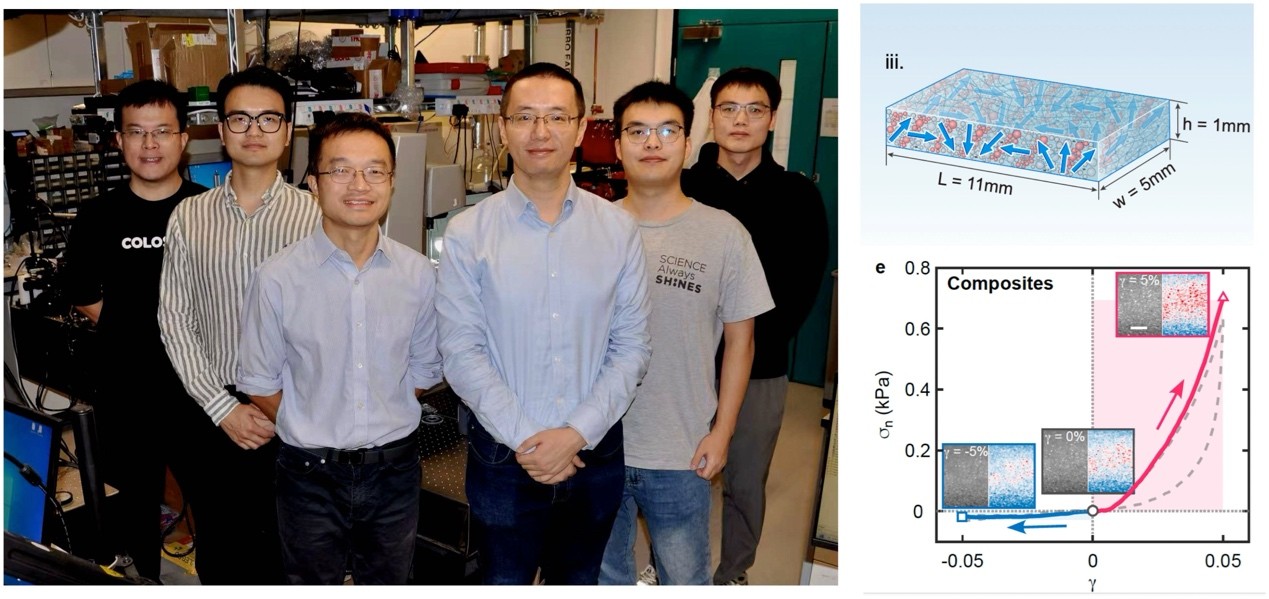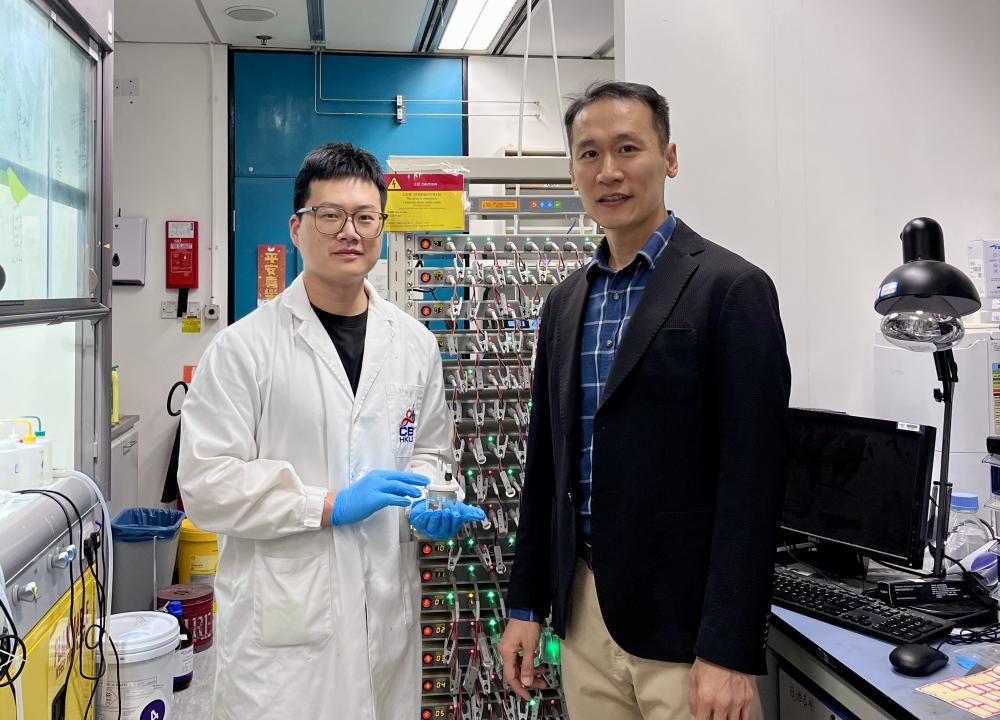HKUST Researchers Pioneer Pathway to Mechanical Intelligence by Breaking Symmetry in Soft Composite Materials
A research team, led by Prof. XU Qin from the Department of Physics (PHYS) and Prof. HU Wenqi from the Department of Mechanical and Aerospace Engineering (MAE) at The Hong Kong University of Science and Technology (HKUST), has developed soft composite systems with highly programmable, asymmetric mechanical responses. By integrating “shear-jamming transitions” into compliant polymeric solids, this innovative work enhances key material functionalities essential for engineering mechano-intelligent systems— a major step toward the development of next-generation smart materials and devices.
In engineering fields such as soft robotics, synthetic tissues, and flexible electronics, materials that exhibit direction-dependent responses to external stimuli are crucial for realizing intelligent functions. Conventional methods to achieve such asymmetry, however, often rely on the structural nonlinearities of discrete metamaterials, which are inherently sensitive to defects and fractures. In contrast, the new design paradigm introduced by HKUST researchers leverages shear-jammed soft composites, offering a versatile and robust alternative with programmable and defect-tolerant performance.
The scientific and engineering impacts of this approach are summarized below:
• Multi-Directional Control: The engineered soft composites exhibit non-reciprocal behaviours in both shear and normal directions, simultaneously enabling asymmetric shape memory properties.
• Programmable and Tough: Unlike brittle, rigid metamaterials, these soft composites are highly programmable and remarkably fracture-resistant. Their mechanical properties can be tailored across multiple scales through the shear-jamming phase transition, allowing for custom-designed performance in diverse applications.
• Active and Intelligent Materials: By integrating these shear-jammed structures with spatially-modulated magnetic profiles, the team developed "active soft solids" capable of directional motion. These materials function as a bio-inspired soft robots that can navigate confined environments and enable selective flow control as smart valves in microfluidic systems.
From a scientific perspective, the study bridges the fields of granular physics and polymer science, creating a new class of non-reciprocal soft materials. From an engineering standpoint, it establishes a powerful design strategy for a wide range of soft composites with directionally sensitive and adaptive responses. This approach not only represents a critical pathway toward achieving mechanical intelligence, but also opens the door to smart, energy-efficient materials capable of interacting intelligently with their environments.
This interdisciplinary study, conducted by HKUST researchers from the Departments of PHYS and MAE, was recently published in Nature Materials. XU Chang, a PhD student from the Department of PHYS, is the first author of this paper. The research was supported by the Hong Kong Research Grants Council and the HKUST Marine Robotics and Blue Economy Technology Grant.












